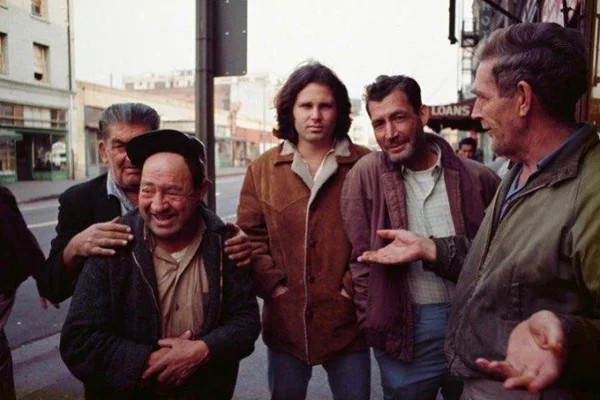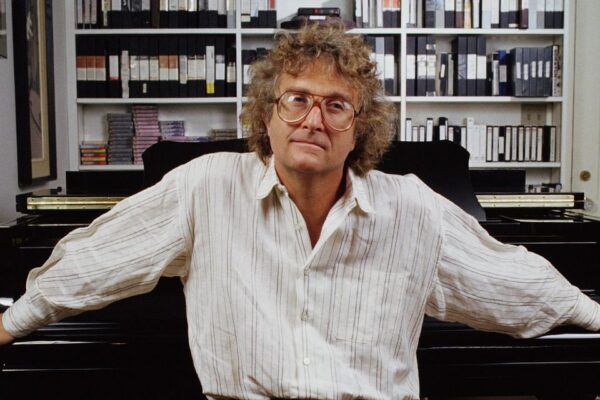Many of Donald Trump’s supporters believe that his presidential election returns the nation to an America that’s recognizable to them, even if it exists mostly as an idea, one where their voices are no longer drowned out.
In 2015, Hamilton burst onto the Broadway stage, shaking up the American theater scene. Barack Obama was president, and with Lin-Manuel Miranda’s hip-hop rendition of the Founding Fathers, it felt like America was taking a new, inclusive direction. Hamilton was bold, recasting the nation’s story with Black and Latino actors playing Washington, Jefferson, and Hamilton himself, delivering their lines with a fusion of hip-hop, R&B, and pop.
It was an audacious move that won Tonys, a Pulitzer, and even praise from President Obama, who called it “the story of America then, told by America now.” For many, the musical symbolized a shift in American identity, one where history could be told through the voices of people whose ancestors had been sidelined in the nation’s founding.

The Obama era indeed gave way to unprecedented representation of diverse voices. Shows like Black-ish, Empire, and Fresh Off the Boat premiered, bringing Black and immigrant narratives into prime-time living rooms. For the first time, network television reflected a broader spectrum of the American experience, and Hollywood began opening doors—if slowly—to minority actors, directors, and producers. In the arts and media, many celebrated this shift as a long-overdue reckoning with America’s multicultural identity. Hamilton became the soundtrack of this new narrative: an aspirational vision of unity through diversity.
But here we are in 2024, with Donald Trump not only re-elected but buoyed by a sweeping Republican takeover of Congress. Many of his supporters believe that the election returns the nation to an America that’s recognizable to them, even if it exists mostly as an idea, one where their voices are no longer drowned out. They’ve watched the country’s cultural landscape transform in a short time—from the personalities in sitcoms and commercials to the genres in movie soundtracks—and it’s clear to them that something has shifted dramatically. As they see it, America has gone from Leave It to Beaver to Black Panther in just a couple of generations, and while the multicultural shift appeals to many, others feel left out or alienated.
Some people argue that cultural changes should match the pace of the country’s evolving demographics. Black Americans, after all, make up less than 14% of the population, while Hispanic Americans are around 19%. Yet turn on the TV, they say, and it feels like every other commercial features hip-hop or stars a Black or Hispanic actor. For those uncomfortable with this rapid shift, it’s easy to imagine a familiar frustration: a sense of their own America slipping away, of being caught in an America that celebrates Snoop Dogg over Sinatra and Cardi B over Barbra Streisand.

On the other hand, demographics aren’t always destiny, and the data shows that diversity is growing regardless. Census projections suggest that, within 20 years, white Americans will no longer be the majority. Generation Z is already the last generation of Americans with a white majority; those born since 2010—Generation Alpha—are the first “majority-minority” generation in U.S. history. By 2045, white Americans are projected to drop below 50% of the population, a historic shift.
This generational shift is precisely what Donald Trump’s victory reveals: a resistance, not just political but cultural, to an America that’s steadily slipping from what many grew up with. As Professor Dowell Myers from USC notes, “Race is the most complicated variable in the census, and it’s the one that draws people like moths to the flame.” The numbers bear this out, too. While 77% of Americans over 75 are non-Hispanic whites, barely half of those aged 18-24 fit that description. Those who feel disoriented by the shifting makeup of America see it not as an economic inevitability or as a source of cultural enrichment, but as a departure from what they recognize as the American identity they grew up with.
The irony is that both sides see themselves as stewards of the “real” America. For the Trump supporters who propelled him to another victory, holding onto their cultural identity feels like a bulwark against an erosion of their values and heritage. For younger, more diverse Americans, America’s identity is precisely this shift toward multiculturalism, inclusivity, and innovation. It’s the America of Hamilton and Black Panther, of Kendrick Lamar and Bad Bunny—an America that is not just shaped by white stories and faces, but that sees diversity as a foundational strength.
The conflict over cultural representation isn’t new. America’s history has been filled with waves of cultural change, from jazz and rock ‘n’ roll to punk and hip-hop, each met with initial resistance. But today, the push and pull feels amplified by the immediacy of media, the speed of change, and the internet’s echo chambers. If the cultural tension of today feels sharper, it might be because the stakes feel higher. For many white Americans, there’s a perception that this change is permanent, an inevitability confirmed by the data. And while plenty of Americans embrace this future, others fear it and feel as if they’re left without a voice.
Ultimately, what the “culture wars” represent is a clash over American identity—over who gets to define it and what it means to live in a pluralistic society. The idea that Hamilton and Black Panther might one day stand alongside The Music Man and Gone with the Wind as Americana is, for some, a thrilling testament to the power of diversity. For others, it’s a lament for an era they believe is gone.
But America has always been about change and adaptation. Trump’s re-election may have signaled a momentary pause for those who want to return to a familiar cultural landscape. However, the broader direction is undeniable. As Hamilton suggested, America is constantly rewriting its own story. And maybe that’s the truest essence of the nation—a place that, while deeply divided at times, continues to evolve, embracing and resisting change in equal measure. If anything, America’s strength has always been its ability to wrestle with, rather than run from, its contradictions.
TONY CASTRO, the former award-winning Los Angeles columnist and author, is a writer-at-large and the national political writer for LAMonthly. org. He is the author of the forthcoming novel The Book of Marilyn. He can be reached at tony@tonycastro.com.





